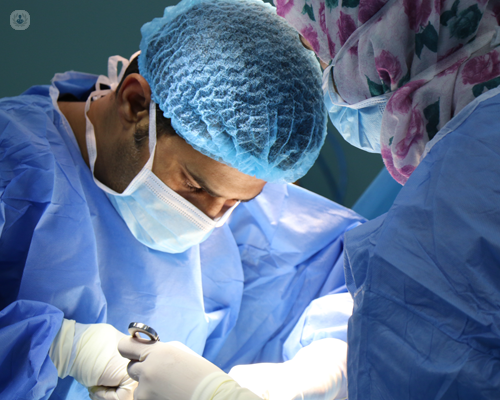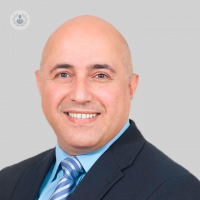Using Optilume® for urethral stricture treatment
Autore:Optilume® Drug Coated Balloon technology was recently used in a UK urethral stricture procedure for the first time ever this year (2021). This innovative, minimally-invasive option expands the choices available to patients when this uncomfortable condition becomes a recurring issue.
Top Doctors speaks to leading consultant urological surgeon Mr Aza Mohammed, about just what urethral stricture is, existing surgical options and why Optilume® technology is a welcome development for men’s health.

What is urethral stricture?
Urethral stricture is a common problem in men. It is characterised by narrowing of the urethra (water pipe) which could adversely affect the flow of urine resulting in urinary symptoms and a wide range of complications. Urethral stricture could be caused by previous trauma to the penis, infection or even simple procedures, such as urethral catheterisation. In some cases, there is no identifiable causes.
How is urethral stricture treated?
Standard treatment for urethral stricture is in the form of;
- Stretching of the narrow part of the urethra (urethral dilatation),
or;
- Endoscopic cutting (optical urethrotomy) to release the stricture.
The main disadvantage of these procedures is the high recurrence rate, resulting in patients often requiring regular repeated procedures and/or learning intermittent self-dilation to manage their symptoms.
Is surgery an option for people with urethral stricture?
Patients with recurrent strictures could be offered a surgical operation, called urethroplasty. Urethroplasty is an open surgical procedure performed under general anaesthesia. The scar tissue is cut away and the urethra is re-joined, or a tissue graft (from cheek lining) is used to widen the scarred urethra. Patients are catheterised for several weeks after surgery. This is a highly-specialised operation which is only performed in a limited number of centres across the UK.
How is the Optilume® Drug Coated Balloon used to treat urethral stricture?
The Optilume® Drug Coated Balloon has emerged as a novel, minimally-invasive solution to patients with recurrent urethral stricture. It is routinely performed as an outpatient, local anaesthetic procedure. The device is made of a dilation balloon coated with an anti-proliferative drug (Paclitaxel) which is delivered to the inner urethral wall during the procedure to prevent the fibrotic tissue response associated with stricture recurrence.
The balloon, which is deflated at the start of the procedure, is advanced endoscopically through the narrow part of the urethra. The balloon is then inflated when in position, breaking the scar tissue in the stricture and facilitating the release of the drug at the same time to the target tissue. The drug then infiltrates into the stricture tissue and is designed to inhibit the natural urethral response to re-scar and subsequently prevent future recurrence.
Which patients are suited to Optilume® treatment?
This treatment is currently designed for patients with recurrent anterior, or ‘bulbar’, urethral strictures up to 3cm in length. At the end of the operation the patient may have a catheter for a up to two days to ensure the drug remains effective in the urethral tissue. There are minimal complications associated with this treatment, and the majority of them are local to the treated urethra. There have been several studies, with follow up of more than 3 years, which show safety, efficacy and durability of this treatment for patients with recurrent urethral stricture.
In conclusion, the Optilume® Drug Coated Balloon is a promising, innovative treatment which provides a minimally-invasive and durable solution to men with recurrent urethral strictures who would often undergo regular repeat treatment or invasive surgery.
If you have urological concerns that might lead to treatment for conditions like urethral stricture, make an appointment with Mr Mohammed via his Top Doctors profile, here.


